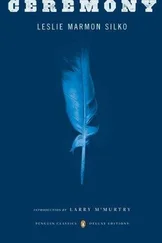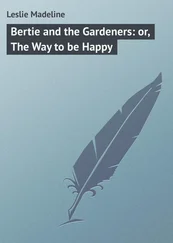Indigo was asleep when the train jerked and then jerked again and shuddered as the locomotive began to brake for the stop in Needles. Indigo quickly opened the compartment door, looked both ways for the conductor, then stepped out. She made her way to the end of the car to the exit door between the train cars, where the rush of wind smelling of coal smoke and the grind of steel wheels against steel rails engulfed her. She hid behind the luggage rack of valises and trunks to wait.
Her heart was pounding and she felt as if she might wet her pants, but the urge to urinate passed as the train slowed. In the distance she heard a voice call “Needles”; each call became louder as the conductor approached. Indigo closed her eyes and concentrated on the sand lizards she’d watched, then she flattened herself on the floor behind the luggage just as the conductor entered the car. He called out “Needles” loudly as the train jerked and creaked to a halt. Indigo’s heart sank further with each bump and brake’s squeal — the stops at San Bernardino and Barstow had been far less noisy and bumpy. She knew Hattie and Edward could not possibly sleep through all the racket.
She scrambled out of her hiding place to reach the outer door and the steps to jump from the train as it came to a stop. Just then she heard Hattie call out her name, and the sound of the compartment door, then footsteps behind her. Sweat ran down her chest and back; she had to get out now! Suddenly the conductor stood in front of her; behind her Hattie called her name. Indigo did not turn; she stood facing the exit door until she felt Hattie’s hand gently slip over her hand.
Clackety-clack! Clackety-clack! You left home, now you’ll never get back. Clackety-clack! Never get back, never get back, get back, get back, the rails sang; even when Indigo put her fingers in her ears she heard the song. She cried until the tears made a wet spot on the pillow. Hattie sat on the edge of her berth and patted Indigo’s back.
Indigo sobbed with disappointment in herself; Grandma Fleet would have been so disappointed too, because she always managed to escape the first time she tried. Now that she missed her chance at Needles, the train was speeding her farther and farther away from Mama and Sister Salt. Hattie was a nice person, and her husband was OK; Hattie meant well, but she did not understand.
Indigo cried herself to sleep and dreamed she was back at the old gardens. Linnaeus was up in the top branches of a tree helping Grandma Fleet pick apricots. The apricot seedlings had grown greatly in the dream and their branches were heavy with fat orange apricots. Sister Salt and Mama sat in the shade and split open the apricots for drying in the sun. She stayed with them in the dream for a long time because she felt their love for her so strongly. When she awoke, she could still feel their love, powerful as ever, and she was confident she would return to them before long.
Hattie could not get back to sleep. She was thinking about the child. The superintendent at the Indian school knew so little about her. When they returned from abroad, Hattie planned to make a thorough investigation of Indigo’s background. Edward was agreeable; he was actually quite interested himself in rare or extinct Indian cultures. Edward thought it was a coincidence the child tried to get off the train in Needles, but Hattie had seen the expression in Indigo’s eyes, and she knew Needles was Indigo’s destination.
The next morning Indigo slept past ten o’clock; she was reluctant to get dressed. When she finally raised her arms so Hattie could slip off the nightgown, Hattie saw the reason: Indigo had not undressed the night before. Indigo looked at Hattie, then reached down the front of her skirt and pulled out the stained napkin with the slices of roast beef.
“What’s this? Rations for your journey?” Hattie said softly. “Indigo, dear, you’d be all alone.”
“No!” Indigo cried as big tears ran down her face. Hattie felt her throat constrict.
“You must be terribly homesick, Indigo. I’m so sorry for you.” She reached out to hug Indigo but the child stiffened and turned away angrily.
“Mama and Sister Salt are waiting for me!” Indigo cried. She did not speak for the rest of the day, and sat listlessly on her berth and refused to eat. She felt better when she thought about the Messiah and the dancers. Hadn’t their Paiute friend told them that part of the year the Messiah traveled far to the east to find cooler weather? At that moment Indigo felt reassured; although she missed her opportunity to get off the train in Needles, still there was a chance the Messiah and the others were farther to the east anyway.
“Edward,” Hattie said as she returned from looking in on the sleeping child, “did the superintendent at the Indian school mention anything about the child having a sister or mother?” Edward removed his reading glasses and rubbed the bridge of his nose with his fingers and shook his head wearily. He had difficulty getting to sleep the night before, then after the child’s near escape, he lay wide awake until dawn.
“Indian school employees are not particularly knowledgeable about their students,” he explained.
“Poor child! She must have known she was near her home and she—”
“She nearly got herself lost or killed jumping from the train!” Edward interjected. He mopped his forehead with his handkerchief, then opened the window wider for fresh air.
“Are you feeling ill?”
Edward smiled and shook his head. “Too much reading and writing in a jolting coach for an old man. Shall we play a game of gin rummy?” Edward refolded the pages of a letter and put away the letter and the legal-size documents bound in blue manila. Hattie glanced at the papers as he closed up the leather portfolio.
“Has something come up?”
“There’s not a thing to worry about,” Edward said as he brought out the deck of cards.
“The Pará expedition?”
Edward nodded.
“Wasn’t all that settled at the time?”
Edward removed the jokers and shuffled the deck.
“Shall I keep score?”
“Yes, if you will. Here’s the pencil.”
Edward continued to reshuffle the cards.
The insurance underwriters had indemnified all the investors. Nonetheless a lawsuit had been filed. His attorney even called it a frivolous lawsuit. Edward smiled reassuringly and passed Hattie the deck of cards.
There was a two-hour stop in Albuquerque for a crew change, and Hattie managed to persuade Indigo to accompany them for a stroll in downtown Albuquerque.
“The fresh air will do wonders for us,” Hattie said as she brushed Indigo’s hair and fastened it with little silver barrettes.
“These used to be mine when I was a girl. Mother made me wear them whenever I rode my horse so my hair didn’t tangle.”
“A horse?” Indigo knew of men who had horses, but a little girl?
“Yes, I know, my mother was just as shocked. She begged my father not to allow me to ride. But I had so much fun.” Indigo put on the kidskin slippers and Hattie arranged Indigo’s new straw hat with the ribbons down her back.
Beyond the depot platform Indigo was surprised to see five or six Indian women in the shade of the overhang from the depot roof, with their blankets spread open to display little black-and-white pottery and small willow baskets, not nearly so fine as Grandma Fleet’s baskets. Other train passengers were examining the pottery and baskets as they walked past. Indigo stared at the women’s faces and at their woven black dresses with red wool sashes, and the black-and-white pottery they made, and thought they must be related to the Hopi people. Hattie noticed Indigo’s interest in the women and thought perhaps the child might be comforted to greet people of her own kind. But when Hattie asked Indigo if she wanted to go over to speak to the Indian women, Indigo shook her head and walked faster to hurry past the Indian women, who were busy with sales to the train passengers.
Читать дальше












